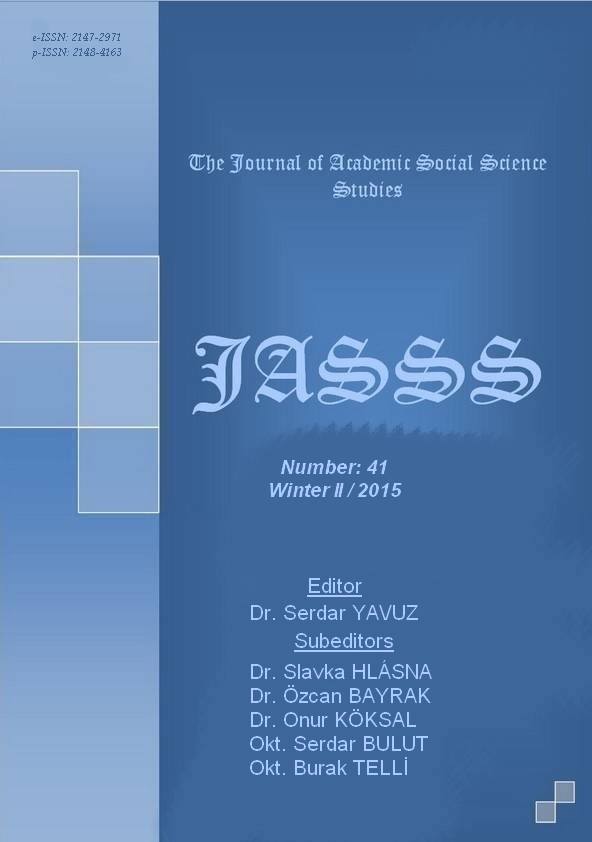Author :
Abstract
Kur’ân’ı anlamadan okumak ve bunu alışkanlık haline getirip yaygınlaştırmak Kur’ân ve Sünnet’e göre doğru bir davranış mıdır, bunun sevabı var mıdır, yoksa bu sonradan ortaya çıkan batıl bir gelenek midir? Kur’ân’da, onu anlamadan okumanın sevabı olduğuna dair herhangi bir bilgi yokken, onu anlamak ve hayata yansıtmak gerektiğine ve Kur’ân’ın gönderiliş amacının bu olduğuna dair birçok ayet vardır. Kur’ân’ın bu hedefi Peygamber (s.a.) ve ilk üç nesil tarafından sağlıklı bir şekilde anlaşılıp uygulanırken, sonra gelen nesiller bu hedefi ıskalamış ya da bilerek veya bilmeyerek saptırmıştır. Kur’ân’da okumayı ifade eden kelimelerin hepsi, “anlayarak okumak” manasına geldiği halde, özellikle Arap olmayan milletlerin İslam’a girmesi ve Kur’ân’ı anlamadan okumaya başlaması, zamanla bu kelimelerin “anlamadan okumak” manasında anlaşılmasına sebep olmuştur. Bu konuda Peygamber (s.a.) ve sahâbîlerden birçok rivayet nakledilmiş olmakla beraber bu rivayetlerde kastedilen şey, “Kur’ân’ı anlayarak okumak” olduğu halde, parçacı yorumcular, bu rivayetlerin işlerine gelen kısımlarını alıntılayarak bunların yanlış anlaşılmasına sebep olmuştur. Kur’ân ve Sünnet’te, Kur’ân’ı anlamadan okumanın sevabı olduğuna dair tek bir delil gösteremedikleri, Peygamber (s.a.) ve ilk üç nesil Kur’ân’ı anlamadan okumayı kınadıkları halde, kendi kültürel anlayış ve pratiklerine odaklanan sonraki nesiller böyle bir iddiada bulunabilmişlerdir. Biz de bu çalışmamızda konunun detaylarını Kur’ân ve Sünnet’te arayıp ona göre bir sonuca varmaya çalışacağız.
Keywords
Abstract
Is it right in the viewpoint of the Qur’ân and Sunnah to read the Qur’ân without understanding it and to generalize this habit? Is this a good deed or is it a superstitious custom that emerged later on? There is no evidence in the Qur’ân that says that reciting it without understanding it will be rewarded whereas there are a lot of verses in the Qur’ân which point out that it is necessary to understand and apply it in everyday life and the aim of revealing the Qur’ân is this. Although the Prophet (PBUH) and the first three generations understood and applied this aim of the Qur’ân, the successors missed this objective and consciously or unconsciously misleaded it. Though the words used to mean “reading” in the Qur’ân, mean “reading and comprehension”, the conversion of nations who were not Arap and their reading Qur’ân without comprehension, later on caused these words to be understood in the meaning of “reading without comprehension”. Although a lot of traditions have been narrated from the Prophet (PBUH) and his successors about reading Qur’ân, the meaning that was intended in these traditions was, “reading with comprehension”. But atomistic commentators caused these traditions to be misunderstood by quoting the parts of these traditions which they needed for their aims. Although they could not provide a proof from the Qur’ân and Sunnah that reciting the Qur’ân without understanding it is rewarded and although the Prophet (PBUH) and the first three generations blamed the person who recites the Qur’ân without understanding it, the successors of the first three generations, who focused on their culturel and practical ideas, claimed this viewpoint. So, in this article, we will try to find the details of this topic from the Qur’ân and Sunnah and accordingly we will come to a conclusion.





